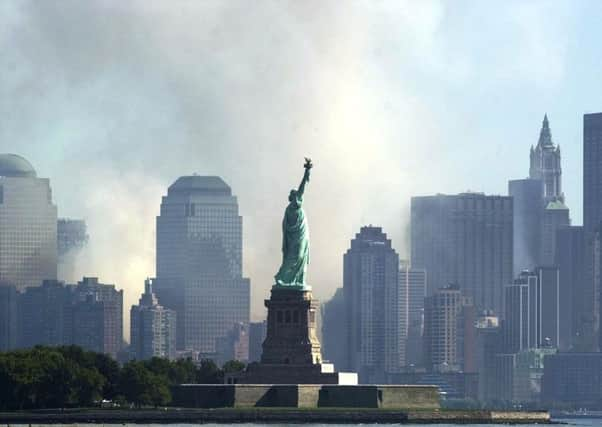Leader comment: 9/11 attacks have shaped our world


Has the US and coalition response led to a safer world? Afghanistan bore the initial force of retaliation as coalition forces bombed the Taleban and broke its grip on the country. But the conflict did not stop there. It was to engulf much of the Middle East while divisions within the Muslim world intensified.
Sectional bitterness spawned terrorist organisations that struck deep into Europe, Africa and southeast Asia. The chain reaction from 9/11 led to a gruelling war in Iraq and the toppling of the Saddam regime. The death toll there alone has been variously estimated at between 174,000 and 184,000 while some 3.9 million people were made refugees and many fled the country altogether
Advertisement
Hide AdAdvertisement
Hide AdIn Syria the bitter war between Sunni and Shia has reduced much of the country to rubble. Estimates of the death toll here range between 292,000 and 470,000. The conflict has sparked one of the largest and desperate migrations in human history. Today European countries are wrestling with the consequences of a mass influx of millions of refugees, a development that tested to the limit the dream of a borderless Europe and the free movement of people. And that testing is not over yet
The killing of Osama Bin Laden led directly to the threat from Islamic State. Horrific terrorist attacks in cities ranging from Madrid, Paris, Brussels and Nice – there were more than 200 attacks in 2015 alone – have had a profound effect on the political mood. And security is now one of the most pressing concerns of governments across the continent. Armed police at major airports and railway stations are now commonplace.
Arguably the country most affected has been Russia. Islamic insurgency brought chaos to the Caucasus and led to the emergence of an authoritarian Vladimir Putin. Crimea is once more under Russian rule after military seizure while Ukraine is under a state of constant threat. The world now has to contend with an altogether more strengthened and menacing Russian leader who has built up his influence in the Middle East.
A credible counterfactual could be mounted that even without Western intervention populist eruption against repressive regimes in the Middle East would have created a political vacuum in which sectarian divisions would explode. But to that central question ‘is the world now a safer place since war was declared on terror?’ Almost certainly not.
And all this may have had a salutary effect on how the US now views the world. It suffered a terrible attack and it was natural and right to wish to act against the perpetrators of that offence, US president Barack Obama said yesterday, “In the face of terrorism, how we respond matters.” Perhaps that was an admission that there are always unintended consequences to action, but act one must.